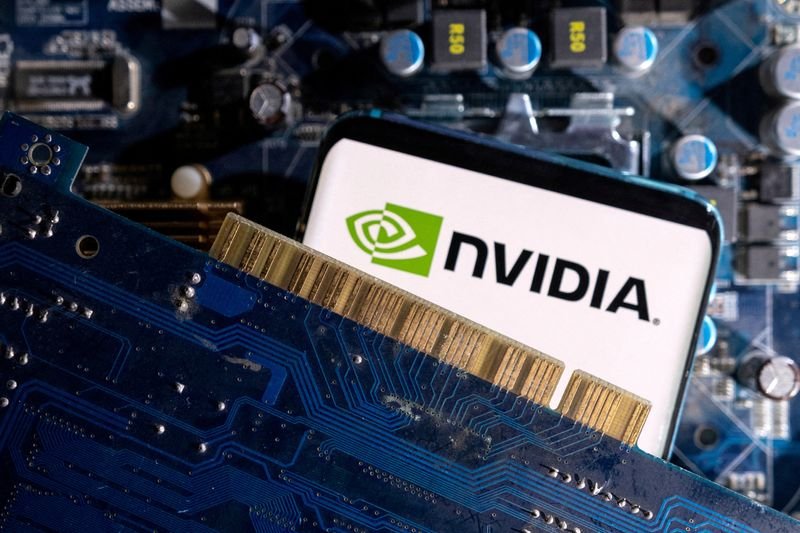U.S. chipmaker Nvidia (NVDA.O) has unveiled a modified version of its cutting-edge gaming chip, strategically designed to adhere to U.S. export controls targeting China.

U.S. chipmaker Nvidia (NVDA.O) has unveiled a modified version of its cutting-edge gaming chip, strategically designed to adhere to U.S. export controls targeting China.
The new chip, named the GeForce RTX 4090 D, boasts a “quantum leap in performance, efficiency, and artificial intelligence-driven graphics,” according to Nvidia. This China-focused chip is set to be available to Chinese customers starting in January 2024, marking a significant move in compliance with evolving regulatory landscapes.
A Nvidia spokesperson informed Reuters that the GeForce RTX 4090 D has been meticulously crafted to fully comply with U.S. government export controls. The company engaged extensively with U.S. government authorities during the development process to ensure adherence to the established regulations.
This announcement follows the introduction of export rules by the Biden Administration in October, which led to the blocking of two modified artificial intelligence (AI) chips—A800 and H800—created by Nvidia for the Chinese market. Additionally, the top-of-the-line gaming chip, the RTX 4090, faced similar restrictions. The GeForce RTX 4090 D, therefore, marks Nvidia’s first official launch of a China-focused chip since the implementation of these export rules.
SemiAnalysis, a chip industry newsletter, had earlier suggested that Nvidia might unveil three new AI chips targeting the Chinese market, potentially as early as November 16. However, a Reuters report in late November revealed that Nvidia informed Chinese customers about a delay in the launch of one of these chips, with the remaining two yet to appear on Nvidia’s China website.
Nvidia has been a dominant force in China’s $7 billion AI chip market, holding a commanding share of over 90%. The U.S. export controls are expected to create opportunities for domestic players, such as Huawei Technologies (HWT.UL), to expand their presence in the market.
U.S. Commerce Secretary Raimondo clarified in a December 11 interview with Reuters that Nvidia retains the ability to sell AI chips to China, with the exception of those with the highest processing power.
Compared to the previously restricted RTX 4090, the China-focused RTX 4090 D is reported to be “5% slower in gaming and creating,” according to Nvidia. The price of the new chip is set at 12,999 yuan ($1,842), making it 350 yuan ($50) more expensive than the second most advanced chip in the product series available to Chinese customers.
Nvidia’s strategic move to comply with export controls while catering to the Chinese market reflects the dynamic nature of global trade regulations and the tech industry’s efforts to navigate these complexities.